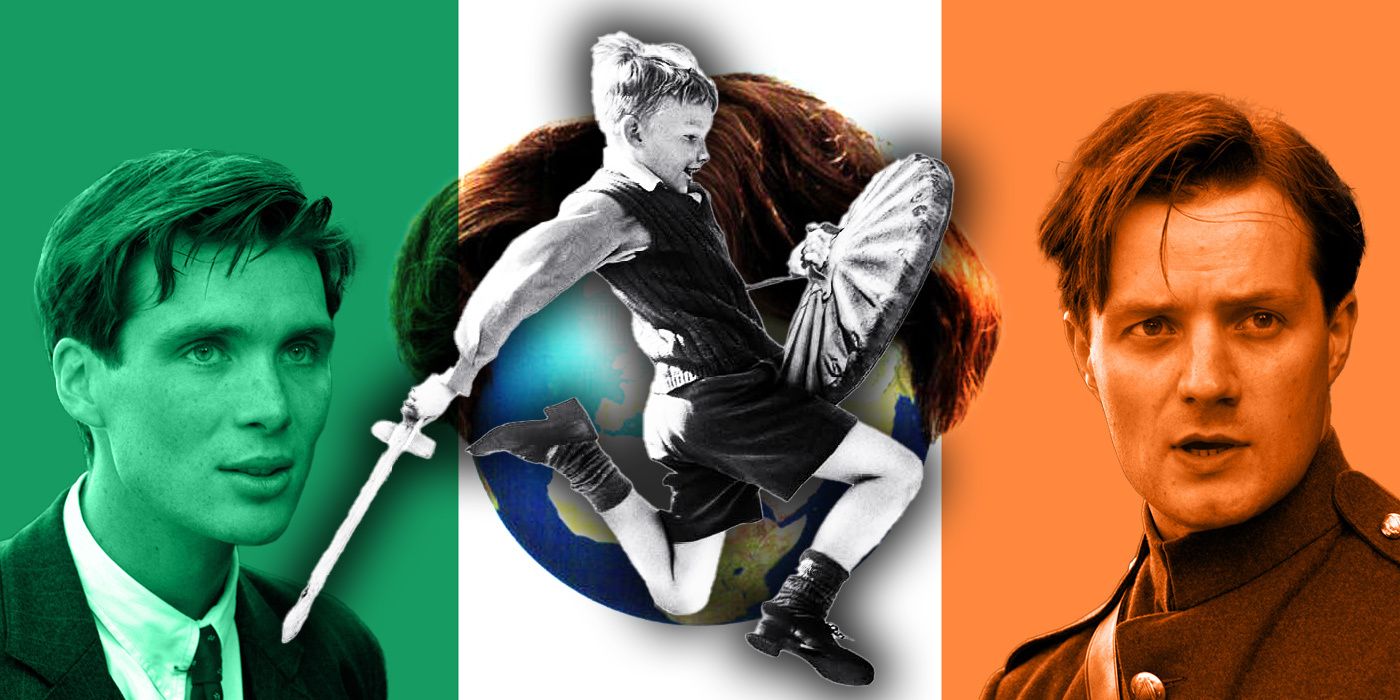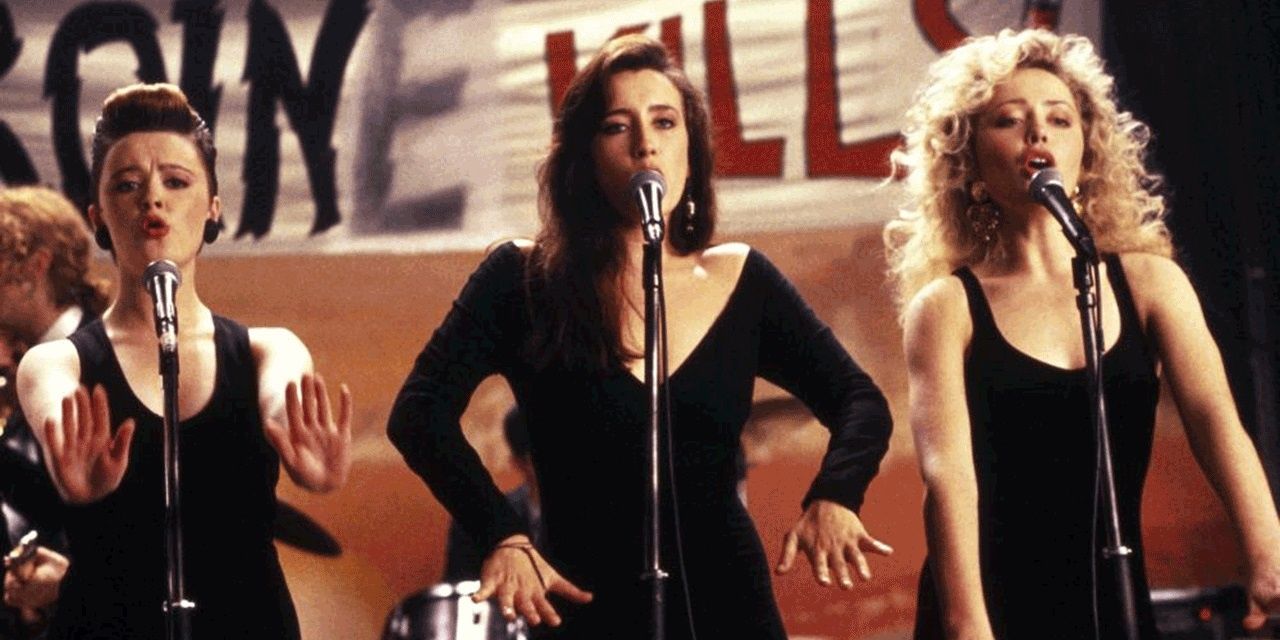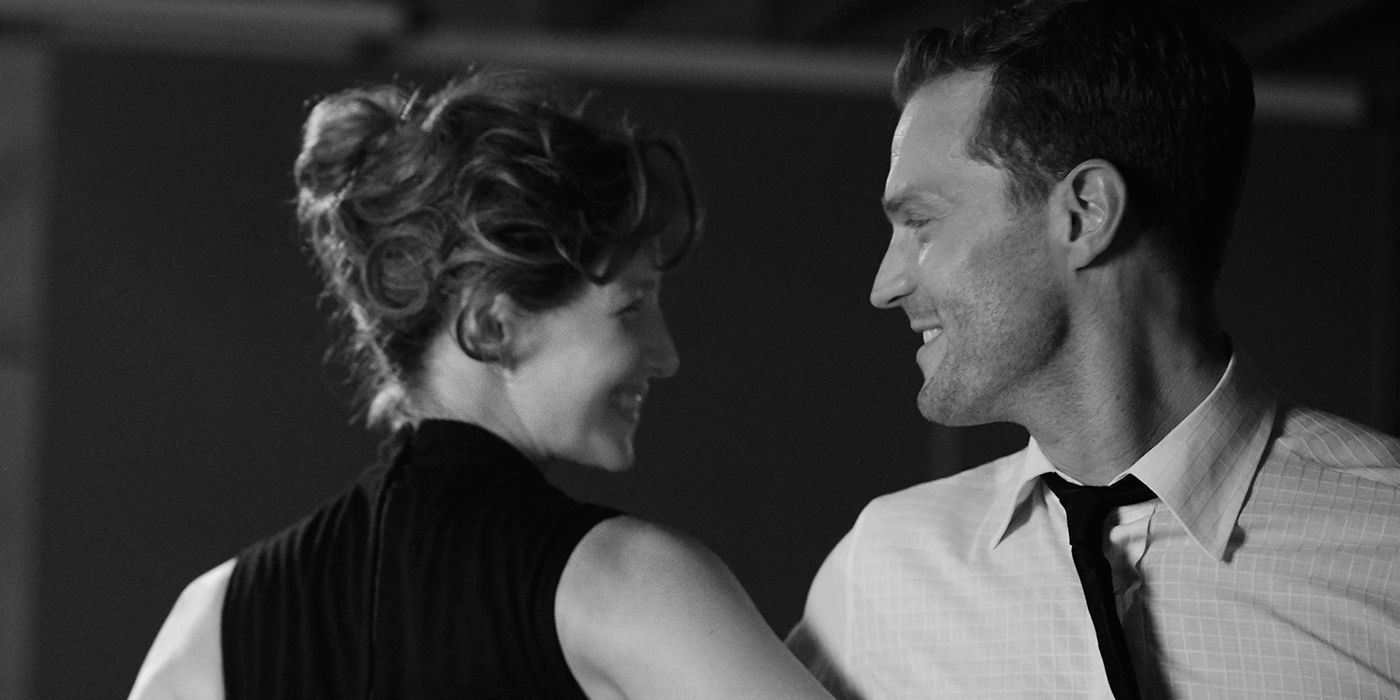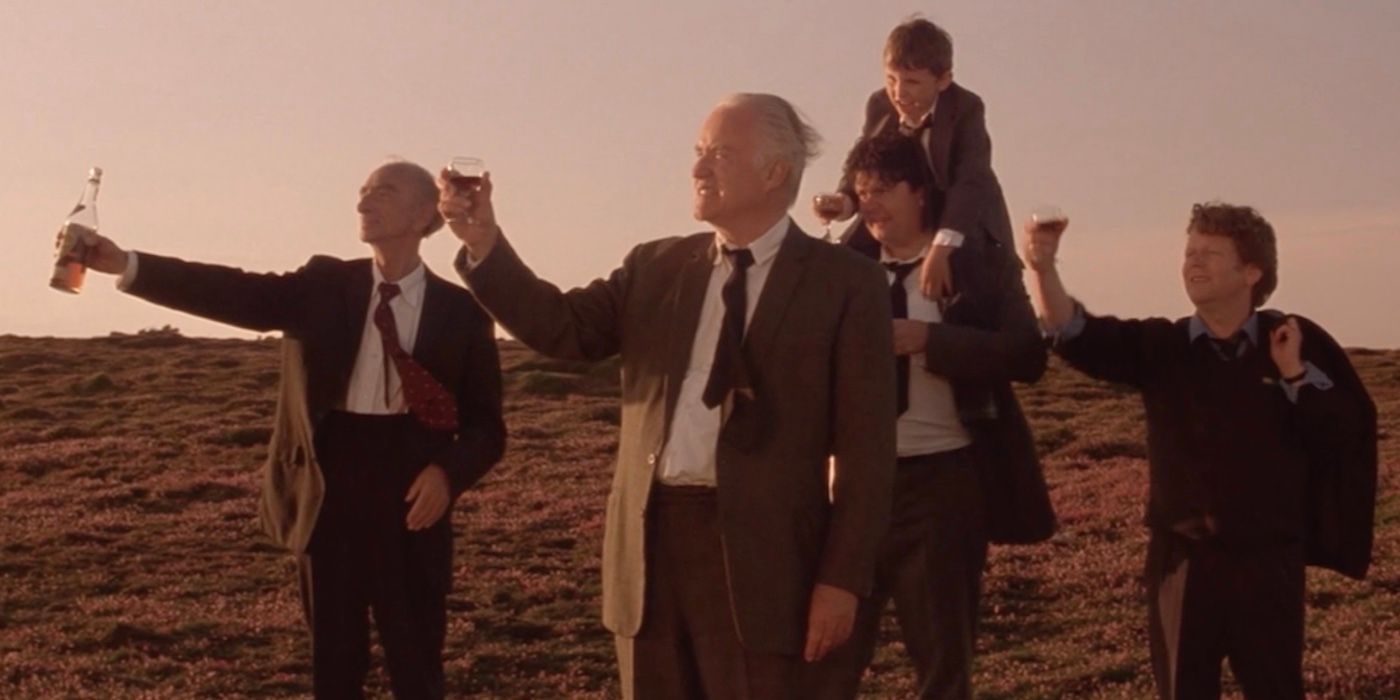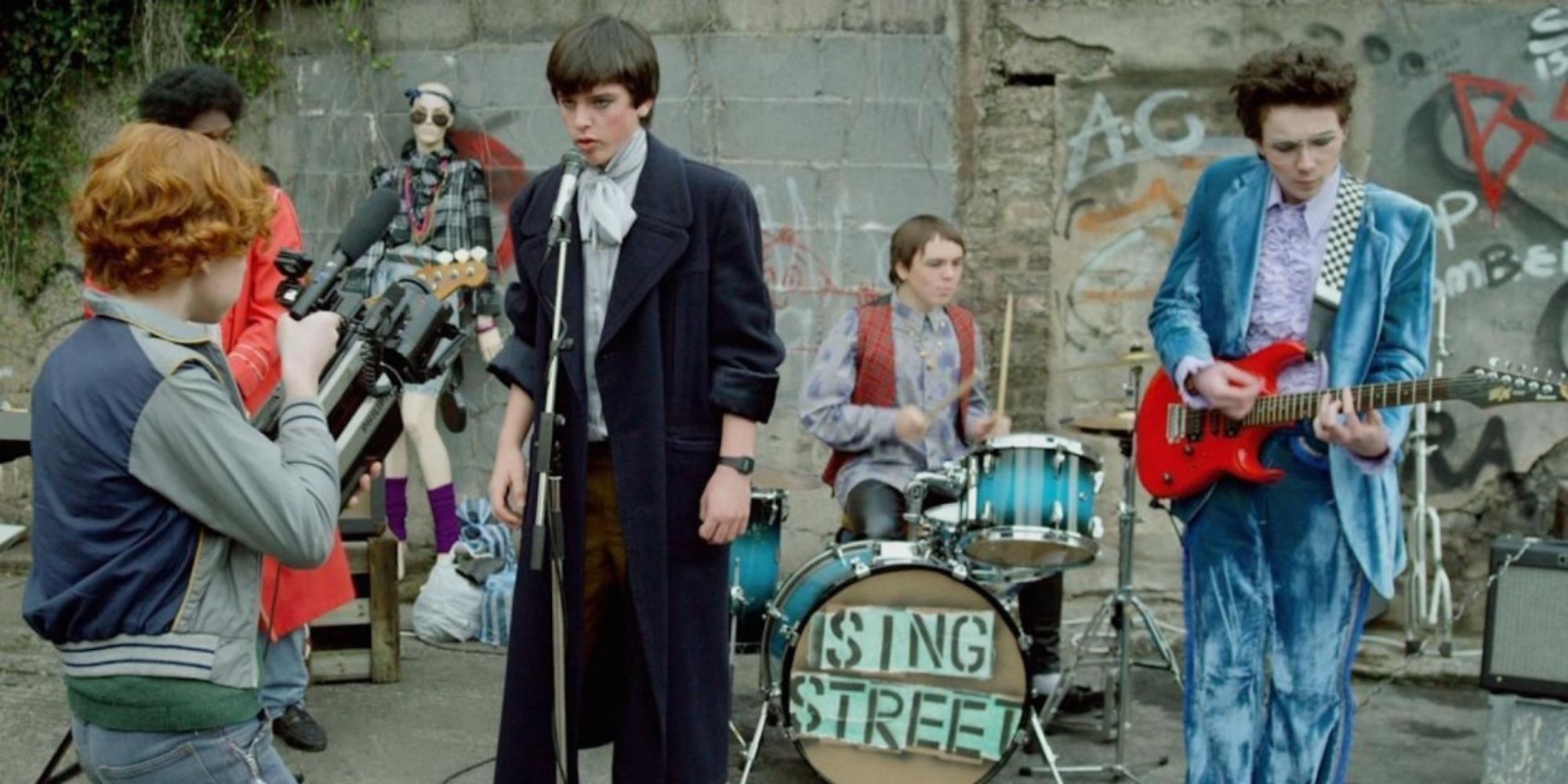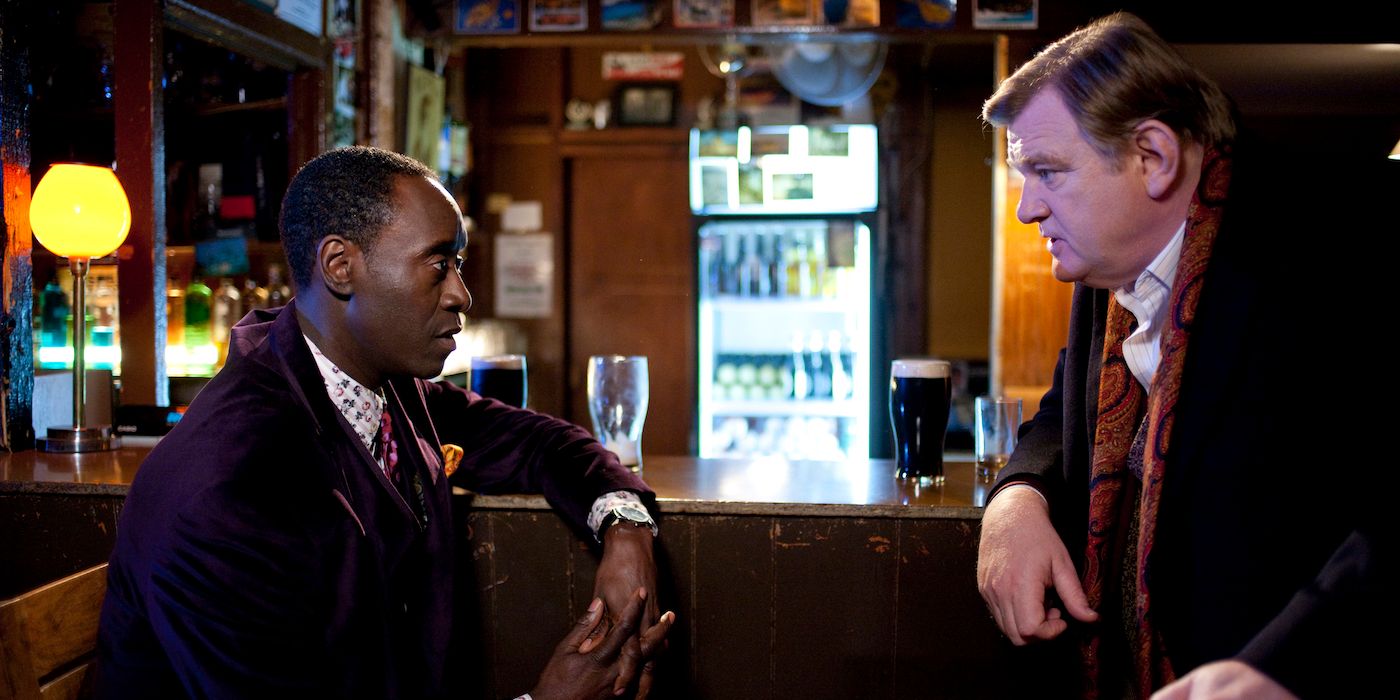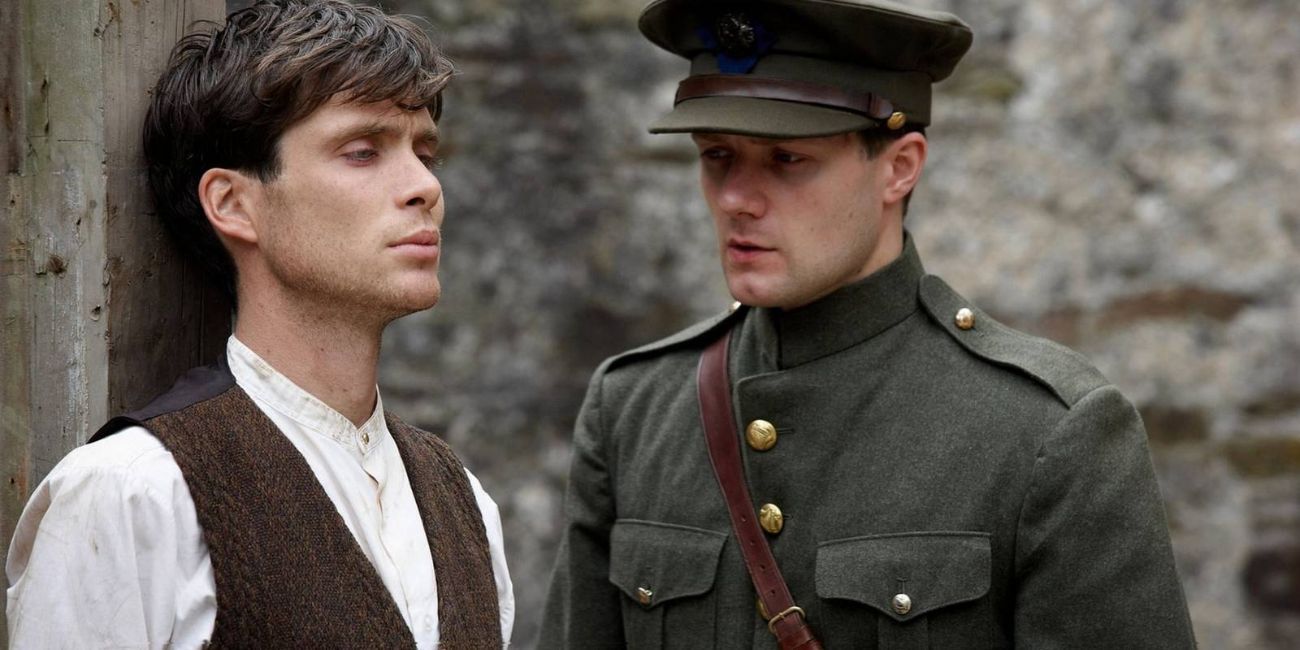America, it seems, can’t get enough of Irish films. We’re intrigued by the accents, the acting, and the music. Some of us may also be motivated by the tenuous connection to our immigrant ancestors. But whether or not you’re sentimental about the much-mythologized “Old Country”, Irish cinema’s unique blend of political tragedy and gallows humor is sure to captivate even the most skeptical viewer. Here are 9 amazing Irish films to watch, covering topics including the Troubles, small-town life, pregnancy, and the Irish Civil War –– all with extraordinary grace. Unlike "Irish" films such as Wild Mountain Thyme or P.S I Love You, these films actually have Irish actors in them, so, thankfully, the dodgy accents are in short supply!
An Everlasting Piece (2000)
When struggling barbers Colm (Barry McEvoy) and George (Brían F. O’Byrne) take jobs at a Belfast psychiatric hospital, they decide to invest in a hairpiece business previously owned by an infamous inmate –– the Scalper (Billy Connelly). But there are a few problems: Colm is Catholic and George is Protestant, a few bald and terrifying IRA (Irish Republican Army) men want hairpieces to hide their shame, and their fledgling business soon has a competitor. Set during the Troubles, a period of violence and sectarian conflict in Northern Ireland lasting from the 1970s to the 1990s, Barry Levinson’s An Everlasting Piece puts a humorous spin on the Catholic vs. Protestant, Republican vs. Unionist conflict dominating Irish political discourse during the 20th century.
Colm and George’s friendship is put to the test by pressure from the IRA, made up of predominantly Catholic, pro-independence militants. They also must cope with the Royal Ulster Constabulary, a police force heavily representing the Protestant minority in Northern Ireland that favors remaining a part of the United Kingdom. An Everlasting Piece transcends the normally polarized dialogue surrounding the Troubles, instead using humor to focus on the adverse effects of the violence on ordinary people. Amid Northern Ireland’s current Brexit controversy and recent social unrest, it’s a powerful reminder of the effects of such bitter infighting.
The Commitments (1991)
This film adaptation of Roddy Doyle's novel of the same name features both snappy dialogue and an excellent soundtrack, two hallmarks of Irish comedies. When aspiring soul musician Jimmy Rabbitte (Robert Arkin) decides to put together a band, he has a number of takers. In addition to Jimmy, the band features local beauty Imelda Quirke (Angeline Ball), blue-eyed alto Natalie Murphy (Maria Doyle), country music lover Bernie McGloughlin (Bronagh Gallagher), as backup singers. There’s also psychotic drummer Mickah Wallace (Dave Finnegan), saxophonist Dean Fay (Félim Gormley), guitarist Outspan Foster (Glen Hansard), bassist Derek Scully (Kenneth McCluskey), pianist Steven Clifford (Michael Aherne), and vocalist and supreme egotist Deco Cuffe (Andrew Strong) as musicians.
Guided by aging soul brother and sometimes fabulist Joey “The Lips” Fagan (Johnny Murphy), the band enjoys early success but soon suffers from clashing egos and romantic entanglements that threaten their artistic aspirations. Yet the bandmates' interactions, though profanity-laden, are laced with humor, despite poverty, unemployment, and their competing visions of the band's future. The Commitments features fabulous renditions of R&B standards Mustang Sally, Chain of Fools, and In the Midnight Hour, among other hits, and remains as delightful as it was upon its release. It’s an affectionate ode to working-class Dublin and music as social uplift.
Belfast (2021)
Kenneth Branagh’s love letter to his Protestant youth in Northern Ireland, and subsequent emigration to England during the Troubles, features the story of Buddy (Jude Hill), the younger brother in a working-class family living in violence-ridden Belfast in 1969. With his father (Jamie Dornan) commuting monthly to England for work, and his mother (Caitríona Balfe) manning the homefront, Billy crushes on a female classmate and relies on his grandparents (Judi Dench and Ciarán Hinds), for romantic advice. But when the family comes under increasing pressure from local Protestant militant Billy Clanton (Colin Morgan), who initiates attacks on Catholic homes and attempts to recruit Buddy’s father to his cause, the prospect of immigration to England becomes more appealing.
The strong performances and black-and-white cinematography prevent Belfast from lapsing into sentimentality, though the film suffers from occasionally poor pacing and obvious conclusions. Notably, Branagh dedicated his film to “those who left and those who stayed.” The longstanding phenomenon of Irish emigration, he seems to say, doesn’t negate people’s loyalty towards or love of Ireland. His ability to portray this tension without taking sides makes Belfast a cut above more simplistic portrayals of the Troubles.
In Bruges (2008)
In Martin McDonagh’s bloody comedy, dimwitted troublemaker and thug Ray (wonderfully played by Colin Farrell) and criminal operative (Brendan Gleeson) leave Ireland for Bruges, Belgium, ostensibly on vacation. While Ray hates the European city, Ken hides a devastating secret: on the orders of South London gangster Harry (Ralph Fiennes) he must take desperate measures due to Ray’s previous accidental shooting and killing of a child during confession. However, Ken’s plan is derailed by his own burgeoning guilt about the prospect of assassinating his friend, and by Ray's troubled interactions with both locals and tourists.
The film raises valuable questions about the bonds of friendship and the possibility of redemption, even after committing a devastating –– albeit accidental –– crime. As the trip devolves into chaos, a surreal conclusion unfolds, teasing the viewer’s conscience and exceeding expectations. The film’s moral explosiveness and bold humor set it apart from typical crime capers and play to Farrell’s strong comedic abilities.
The Snapper (1993)
Again, based on a novel by Roddy Doyle, The Snapper's boisterous dialogue and frankness about pregnancy, drinking, and family life in working-class Dublin plays well on the big screen. Spirited 20-year-old Sharon Curley (Tina Kellegher) becomes pregnant following a drunken encounter with George Burgess (Pat Laffan), her friend’s obnoxious father. Faced with the disapproval of her conservative Catholic neighborhood and her friend’s rejection once her baby’s paternity is discovered, she turns to her father (Colm Meaney) for support, even while insisting that her “Snapper” (i.e, baby) is a result of a one-night stand with a Spanish sailor.
Despite its sober subject matter, The Snapper avoids becoming moralistic or judgemental, instead embracing humor in its tender portrayal of an exuberant and supportive Irish Catholic family in 1990s Dublin. Sharon’s innate strength, and her refusal to be baited by neighborhood gossip, carries the film. Meanwhile, her father’s myriad of concerns about his daughter’s future prevents The Snapper from becoming a public service announcement.
Waking Ned Devine (1998)
When it turns out that the recently deceased villager Ned Devine (Jimmy Keogh) has won the lottery, his loyal friends Jackie O’Shea (Ian Bannen) and Michael O’Sullivan (David Kelly), must figure out how to divvy up their late friend’s win among their fellow citizens. Meanwhile, farmer’s daughter, Maggie O’Toole (Susan Lynch), ignores the attention of Finn (James Nesbitt), a smelly pig farmer who believes he’s the father of her child. When a National Lottery Inspector comes by to ensure that the deceased Ned Devine’s lottery gains are above-board, Jackie and Michael must engage in hilarious shenanigans to secure the future prosperity of their remote village. Released to acclaim in both the United States and Ireland, Waking Ned Devine (titled Waking Ned outside of the US) is nothing short of a comedic classic.
Sing Street (2016)
In 1980s Dublin, Conor Lawlor (Ferdia Walsh-Peelo) escapes the reality of his parents' bitter divorce through music. When Conor must attend the local Christian Brothers school amid his family’s worsening financial circumstances, he immediately arouses the ire of predatory priest Brother Baxter (Don Wycherley) due to his middle-class background and punk-inspired appearance. But with the encouragement of his brother Brendan (Jack Reynor), he’s able to fend off school bullies, start a band, and, above all, pursue his newfound infatuation with troubled teen Raphina (Lucy Boynton).
While Conor’s band grows in popularity and earns him the admiration of his classmates, Raphina, reflecting on her unhappy upbringing, dreams of immigrating to England, in the footsteps of many other young Irish people at the time. The adolescent perspective conveyed in Sing Street, in which adults are powerful but ultimately irrelevant, reflects both the characters’ teenage idealism and their anti-authoritarian stance in the gritty punk era. The plot’s occasional forays into wishful thinking are offset by the brutality of Conor’s academic environment and the messiness of his domestic life. Featuring compelling original songs as well as 80s classics from bands like The Cure and Duran Duran, Sing Street is a sweet and hopeful film about teenagers’ search for meaning and love in an economically stagnant Ireland.
The Guard (2011)
Occasionally profound and always politically incorrect policeman Gerry Boyle (Brendan Gleeson), living in the west of Ireland, teams up with long-suffering FBI agent Wendell Everett (Don Cheadle) to bring down a group of international drug traffickers funneling cocaine through Irish ports. The gang soon gives Boyle and Everett a run for their money. Meanwhile, Boyle becomes increasingly wary of his corrupt fellow Irish cops and deals with his grief over his mother’s illness and eventual suicide. His strained but humorous relationship with the pragmatic Wendell is put to the test as the pair devise a plan to bring down the traffickers –– at tremendous cost to them both. Though The Guard is at times thinly plotted, Gleeson and Cheadle’s on-screen chemistry maintains the tension in the film, even as the crime caper becomes increasingly absurd and the ending verges on the apocalyptic.
The Wind that Shakes the Barley (2006)
Ken Loach’s devastating, Palme D’Or-winning film focuses on the battle for Irish independence from Great Britain post-World War I. Young doctor Damien O’Donovan (Cillian Murphy), originally planning to work in England, becomes politicized when a friend is executed by British soldiers for refusing to say his name in English. After joining his brother, Teddy (Pádraic Delaney), in the local branch of the IRA, Damien finds himself at the heart of a bitter civil conflict pitting friends and neighbors against each other and transforming the Irish countryside into a war zone.
The camera’s constant movement captures the harrowing nature of guerilla warfare. But when the Anglo-Irish Treaty of 1921 dashes Damien’s hopes for a fully independent and united Ireland, his relationship with his discouraged brother Teddy fractures, and the pair are forced to make a set of devastating choices that challenge both their loyalty to the cause and their loyalty to each other. Despite its graphic combat scenes and its challenging subject matter, The Wind That Shakes the Barley features standout performances from both Murphy and Delaney, and examines the roots of sectarian violence with accuracy and grace.

